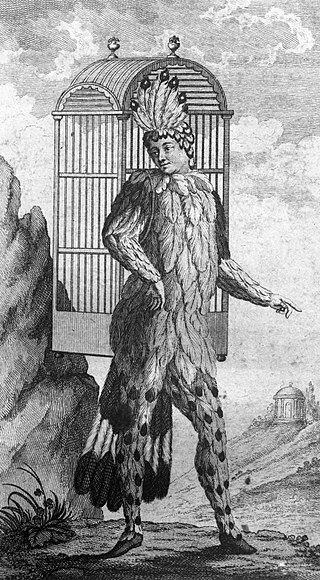
Emanuel Schikaneder was a German impresario, dramatist, actor, singer, and composer. He wrote the libretto of Wolfgang Amadeus Mozart's opera The Magic Flute and was the builder of the Theater an der Wien. Peter Branscombe called him "one of the most talented theatre men of his era". Aside from Mozart, he worked with Salieri, Haydn and Beethoven.
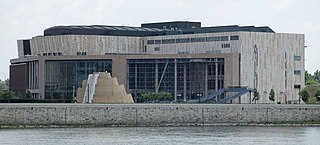
Müpa Budapest is a building in Ferencváros, Budapest, Hungary, officially opened in March 2005. It is located near Rákóczi Bridge and was designed by Zoboky, Demeter and Partners Architectural Office. The National Theatre, which opened in 2002, is located next to it.

Bampton Classical Opera is an opera company based in Bampton, Oxfordshire and founded in 1993. It specialises in the production of lesser known opera from the Classical period. Performances are always sung in English. Opera today called the company 'ambitious, innovative and imaginative'.

The Magyar Theatre is a theatre operating in Budapest, Hungary. Its company started on August 22, 1837 as the first major Hungarian-language theatrical company in the city. They operated under this label until August 8, 1840, when the name was changed to National Theatre of Hungary. Switching homes two times, the company moved to its current building in 1966. The name Magyar Theatre was restored on September 1, 2000, with the opening of the new National Theatre.

Ivan Kamaras is a Hungarian actor who became first known worldwide for his role as Agent Steel in the 2008 superhero fantasy thriller Hellboy II: The Golden Army, directed by Guillermo del Toro. Kamaras voices the title character in the 2018 Hungarian animated feature Ruben Brandt, Collector.
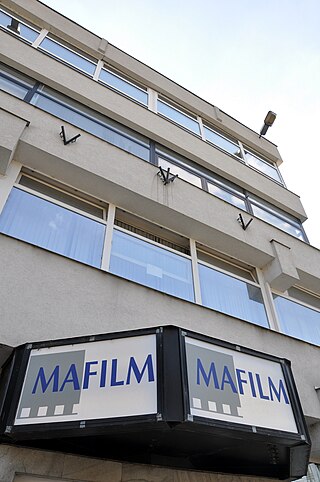
Mafilm was established in 1948. It has been the largest and most significant film studio in Hungary and a strategic base for the Hungarian film industry. Mafilm's history has seen days of glory, just as it has survived severe agonies. The roots of its birth go back to Kolozsvár, and its ancestors include Europe's third-largest silent film factory. Ever since Korda Sándor founded the predecessor of Mafilm, film production has been going on uninterrupted. The importance of the place is also enhanced by the fact that there are almost no Hungarian filmmakers who have not learned the basics of film profession here. Mafilm's history with its predecessors covers more than 100 years of Hungarian film history.
Péter Halász is a Hungarian conductor.

Csaba Káel is a Hungarian film director and CEO of Müpa Budapest. He was awarded the Kossuth Prize in 2020 and the Kálmán Nádasdy Prize in 2013.
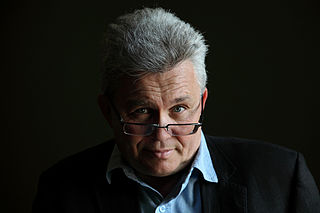
István Márta is a Hungarian composer, theater and festival director, manager of the Zsolnay Cultural Quarter.

Viktor Magyaróvári, known by his stage name Kayamar, is a Hungarian singer, jazz and classical composer. He has abilities in the areas of hearing, vocal range and improvisation.

Renáta Göncz is a Hungarian lyric soprano, opera singer, founding member of the Moltopera Company, and regular partner of Kayamar.

Janka Kulcsár is a Hungarian pianist and répétiteur, and a founding member of the Moltopera Company.
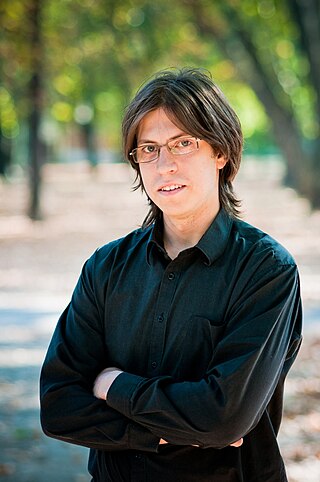
Csaba Tőri is a musical conductor, music teacher and founding member of the Moltopera Company. He is a winner of the Rezső Lantos-prize.
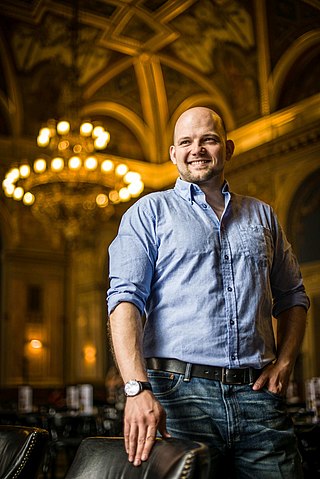
László András Ágoston is a Hungarian baritone opera singer, cultural manager, the founder of Moltopera, music educator, marketing expert and one of the best-known bloggers in his native country.

Hungarian Opera Day is a commemoration of the birth of Hungarian composer Ferenc Erkel and the reopening of the Erkel Theatre in Budapest. It was first held on 7 November 2013.

Zoltán Zubornyák is a Hungarian actor, culture manager, theatre manager, director, volunteer, and art director.

Szabolcs Sándor conductor, accompanist, pianist

The Gyula Shakespeare Festival is a one-week to two-week long, international Festival organised annually since 2005 in Gyula, Hungary. Organizers of the Festival have been József Gedeon (2005–2016), Marianna Varga (2016–2017), and Tibor Elek (2017–present).
Paul Alexander Nyiri was a Hungarian opera singer.

Péter Dobszay Hungarian conductor and organist, winner of the Junior Prima award. He is the artistic director and lead conductor of the Alba Regia Symphony Orchestra, music director of the National Theatre of Szeged, and lecturer at the Liszt Ferenc Academy of Music. He has conducted almost all professional Hungarian symphony orchestras in a wide variety of genres and has performed both as a church organist and as a concert organist throughout Europe and Asia.



















